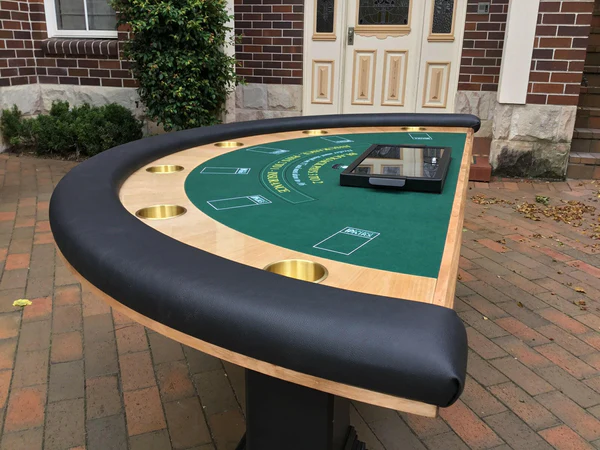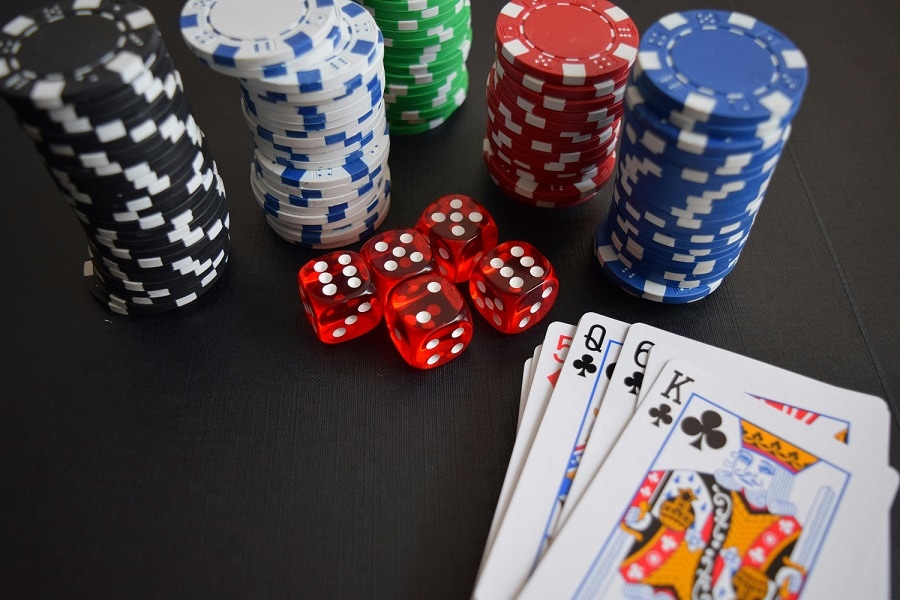From ancient dice games to modern slot machines, gambling has always been tied to the idea of luck. Some players carry lucky charms, perform pre-game rituals, or believe in winning streaks. Others argue that gambling outcomes are purely mathematical, dictated by probability and randomness. The debate between luck and math is at the heart of gambling psychology, and understanding how the two intersect can change the way players approach the game.

What Is Luck, and Does It Really Exist?
Luck is often defined as an unpredictable force that favors some people over others. Gamblers who experience a series of wins may feel like they are on a hot streak, while those who lose repeatedly may believe they are cursed with bad luck. But is luck a real phenomenon, or is it just a misinterpretation of probability?
In gambling, outcomes are determined by chance-based mechanics such as random number generators (RNGs), card shuffling, and dice rolls. These elements ensure that every game is fundamentally unpredictable, but human psychology often assigns meaning to random events, creating the illusion of luck.
The Mathematics of Gambling
Every casino game operates on mathematical principles that ensure the house has an edge. This house edge is built into the rules of the game and guarantees that, over time, the casino makes a profit. While individual players may win big on occasion, the long-term statistics always favor the house.
In games like roulette, blackjack, and slot machines, probability dictates the likelihood of winning. For example:
- Roulette – In an American roulette wheel, there are 38 possible outcomes, but a bet on red or black only wins 47.37% of the time. The remaining percentage favors the house.
- Blackjack – While skill can influence the outcome, the game is still based on probability. A player may win multiple hands in a row, but the overall odds remain in the casino’s favor.
- Slot Machines – Modern slots operate on RNG technology, ensuring that every spin is independent. The payout percentage (return-to-player, or RTP) determines how much a machine is programmed to return over time, but short-term results remain unpredictable.
Mathematically, no single player has a long-term advantage unless they employ strategies that change the odds, such as card counting in blackjack. Even then, the casinos adapt by implementing countermeasures like multiple deck games and automatic shuffling.
The Gambler’s Fallacy
One of the most common cognitive biases in gambling is the gambler’s fallacy, the belief that past outcomes influence future results. This leads players to think that if red has hit five times in a row on a roulette wheel, black is “due” next. In reality, each spin is independent, and the probability remains unchanged.
Slot machine players often fall into the same trap, believing that a machine that hasn’t paid out in a while is “hot” and due for a win. In reality, RNG technology ensures that every spin is random, meaning past losses do not increase the chances of future wins.
This false belief in luck often leads to risky bets, chasing losses, and emotional decision-making, all of which contribute to financial losses.
Streaks and Superstitions
Despite the mathematical reality, many gamblers rely on superstitions and rituals to enhance their luck. Some wear lucky clothing, rub a rabbit’s foot, or follow a specific betting pattern. These behaviors stem from confirmation bias, where people remember the times their superstition “worked” and ignore the times it didn’t.
Winning and losing streaks are another powerful psychological factor. While streaks do occur in random events, they are simply clusters within a larger probability pattern. Gamblers who experience a string of wins may believe they have a special connection to luck, while those who suffer repeated losses may think they are cursed.
Casinos capitalize on these beliefs by encouraging the illusion of control. Free drinks, flashing lights, and celebratory sounds all contribute to the feeling that luck is a real and tangible force that can be harnessed.
Can Skill Override Luck?
While luck plays a major role in games of chance, some forms of gambling allow for an element of skill. Games like poker, blackjack, and sports betting involve decision-making that can influence the outcome.
- Poker – Unlike games where the house has a built-in edge, poker pits players against each other. Skilled players can consistently win by reading opponents, calculating odds, and making strategic bets.
- Blackjack – Players who use basic strategy and card counting can reduce the house edge to nearly zero, though casinos actively work to prevent advantage play.
- Sports Betting – While betting on sports involves probability, knowledgeable bettors can improve their chances by analyzing statistics, team performance, and betting trends.
Even in games with a skill component, short-term luck still plays a role. The best poker player in the world can still lose a hand due to an unlucky draw, just as an experienced sports bettor can lose a wager due to an unexpected event.
Randomness vs. Perceived Luck
Casinos rely on randomness and probability to maintain their profitability. Every game is designed to give the house an edge, ensuring that the longer a player gambles, the more likely they are to lose.
To keep players engaged, casinos design games with reinforcement mechanics similar to those used in slot machines and video games. Small, frequent wins keep players feeling lucky, even when they are slowly losing money over time. This psychological trick, known as variable reward schedules, makes gambling highly addictive.
The perception of luck is also reinforced through selective memory. Players tend to remember their big wins but forget the hundreds of small losses that led up to them. This makes gambling feel more rewarding than it actually is.
Why Some People Seem Luckier Than Others
Some individuals claim they are naturally lucky when gambling, winning more often than others. In reality, this can usually be explained by a combination of variance, risk-taking, and perception.
- Variance – Short-term fluctuations in probability can result in streaks of wins or losses. Some players may experience a lucky streak early on, reinforcing the belief that they are naturally lucky.
- Risk-Taking – People who take bigger risks sometimes win big, while more conservative gamblers may see smaller, steadier losses.
- Perception Bias – Those who believe they are lucky may focus more on their wins and downplay their losses, creating a distorted view of reality.
The Role of Luck in Life vs. Gambling
Outside of casinos, luck can be influenced by preparation, effort, and opportunity. In contrast, casino games are designed so that luck is purely a function of probability, with no way to influence the outcome.
This distinction is crucial for gamblers to understand. While luck can play a role in everyday life—such as being in the right place at the right time—casino gambling is entirely based on mathematical odds.
Even professional gamblers who make a living from betting rely on probability, risk management, and statistical analysis rather than luck. They minimize randomness by choosing games where skill plays a role and managing their bankroll to withstand inevitable losses.
Luck in gambling is ultimately an illusion created by randomness, probability, and human psychology. The belief in luck keeps players coming back, but the reality is that math and the house edge are the true forces at work behind every bet placed in a casino.

